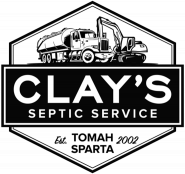Frequently Asked Questions
Does my septic tank need to be pumped every 3 years?
Not necessarily. While many systems need pumping every 3 years, it depends on your household size, tank size, and water usage. A professional inspection every 3 years will help determine the right schedule for your system.
What caused my septic tank to back up?
System backups can result from a full tank, broken or clogged pipes (often caused by tree roots or flushing improper materials), excessive water use (such as from leaking toilets or dripping faucets), or a failing or blocked drainfield. Additionally, using harsh chemicals can harm the system and contribute to failure.
How do I maintain my septic?
- Schedule regular inspections and pump-outs as recommended
- Use water efficiently
- Avoid flushing harmful items or chemicals (wipes, feminine hygiene products, cigarette butts, grease, pharmaceuticals, excessive amounts of household cleaners, etc.)
- Protect the drainfield from damage and excess water
- Keep trees and shrubs off/away from drainfield
- Keep maintenance records
Should I add anything to my septic system?
In most cases, no additives are needed. Your system relies on natural bacteria already present in waste to break it down. Some additives can even harm your system and have the potential to compromise soil integrity and contaminate groundwater.
What are the warning signs of a failing septic system?
- Sewage backing up into sinks, toilets, or drains
- Gurgling sounds in drains
- Sinks and bathtubs draining very slowly
- Foul odors near the tank or drainfield
- Soggy bright green patches of grass over the drainfield
What can I do to prolong the life of my drain field?
- Avoid parking or driving over the drainfield
- Plant trees and shrubs far away to prevent root damage and clogged pipes
- Direct rainwater and runoff away from the area
- Limit or avoid garbage disposal use
- Don't overload the system with excessive water
- Do not allow animals/livestock to graze or stay on the drainfield
What can I pour down my drain?
Stick to wastewater from sinks, showers, and washing machines. Avoid pouring grease (butter, fats, wax, cheese), oils, chemicals (drain cleaners, pesticides, bleach), paints, paint thinners, coffee grounds, or large amounts of antibacterial cleaners. Toxic substances poured down the drain can seep into groundwater, potentially contaminating drinking water and harming the environment.
Can I use a garbage disposal?
It's best to avoid or limit the use of a garbage disposal. Using a garbage disposal can add solids, grease, and fats to the tank, which can overload the system and shorten its lifespan. If one is used, your tank will need to be pumped more frequently to avoid solids from accumulating more quickly and being forced into your drainfield, causing your pipes to clog.
How long does a septic system last?
The lifespan of a septic system depends on several factors, including the materials used, system design, quality of installation, maintenance practices, and environmental conditions. With proper care, a septic system can last 15 to 40 years or more. Regular maintenance is key to maximizing its lifespan.
If your system includes a pump, be aware that pumps and control panels typically need replacement every 10 to 20 years.
Drainfields also have a limited lifespan. After 25 to 40 years, a natural layer called a biomat–which forms at the bottom of the drainfield trenches–can grow too thick. When this happens, it restricts the soil's ability to absorb wastewater, which may lead to ponding in the yard, sewage surfacing, or backups into the tank and home plumbing. While ponding or surface water can indicate a failing system, that's not always the case–issues like root intrusion or sludge buildup may also be the cause and are often fixable.
If your septic system is 25 years or older, it's a good idea to plan ahead for repairs or even a system upgrade before problems become urgent.
What can I flush down my toilet?
Only flush human waste and toilet paper. Avoid flushing wipes (even those labeled "flushable"), feminine hygiene products, condoms, paper towels, diapers, cat litter, dental floss, cooking grease, pharmaceuticals, and other non-biodegradable items.
What caused my septic tank to back up?
There are many reasons why a septic tank may back up. The most common reason is that the tank is full and needs to be pumped. Other reasons include a clogged drain field, tree roots invading the system, or a broken pipe.
